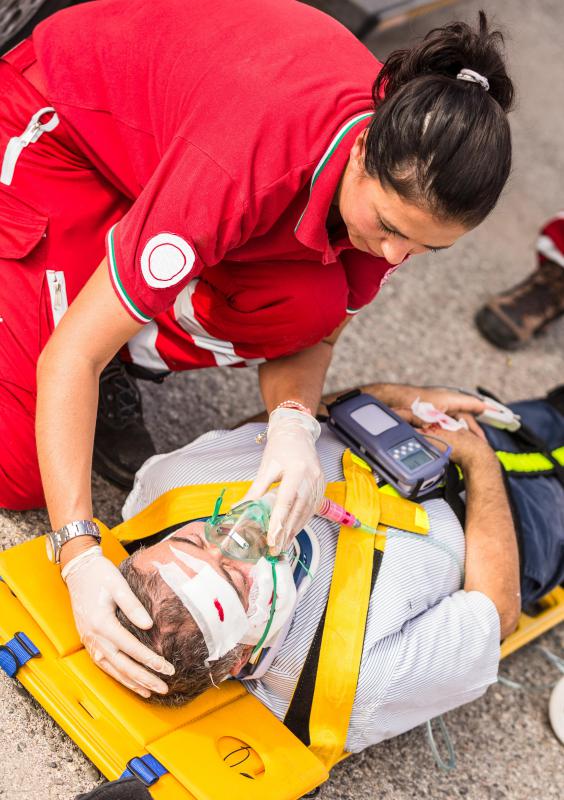At TheHealthBoard, we're committed to delivering accurate, trustworthy information. Our expert-authored content is rigorously fact-checked and sourced from credible authorities. Discover how we uphold the highest standards in providing you with reliable knowledge.
What is Brain Herniation?
Brain herniation is an extremely dangerous medical condition in which the tissues of the brain become displaced in some way due to an increase in intercranial pressure, the pressure inside the skull. The increase in pressure causes the brain to expand, but because it has nowhere to go inside the skull, it becomes badly damaged. In some cases, brain herniation is treatable, but in other instances it will lead to coma and eventual death.
The brain is an extremely unique and interesting organ. Unlike other organs, it doesn't have a very large margin for swelling, because it is encased inside the extremely inflexible skull. As a general rule, the inflexibility of the skull is a good thing, because it prevents damage to the brain and keeps it securely cradled. However, when intercranial pressure rises, the skull turns into a sort of pressure cooker, with the tissues of the brain being forced into areas they don't normally go in an attempt to cope with the pressure.

Brain tissue does not appreciate being moved around. The displacement involved in brain herniation can cause cell damage and death as cells are crushed or their supply of oxygen and nutrients is cut off. At a minimum, this can cause brain damage, but it can also lead to serious health problems, if the cells which regulate biological functions like respiration are damaged. Without the regulatory action of these cells, the body will quickly shut down.

One common cause of brain herniation is severe head trauma. When the head is slammed into something hard or whipped around in a car accident, it can cause an increase in intercranial pressure which will lead to herniation unless it is relieved. Brain herniation can also be caused by growths inside the brain, like tumors, and by other conditions which elevate intercranial pressure, such as hydrocephalus. Early signs of brain herniation include an altered mental state, lack of coordination, irregular breathing, and an irregular pulse.

Treatment options for brain herniation vary. As a general rule, the first step is to reduce the intercranial pressure to prevent further damage to the brain. Depending on what is causing the pressure, this may be attempted with drugs, the insertion of a shunt to drain excess fluid, or other surgical measures. If the intercranial pressure can be stabilized, the next step is to assess the extent of the damage, and talk about possible treatment options. In cases where the pressure is quickly lowered, it may be possible to avoid permanent damage.
AS FEATURED ON:
AS FEATURED ON:















Discuss this Article
Post your comments